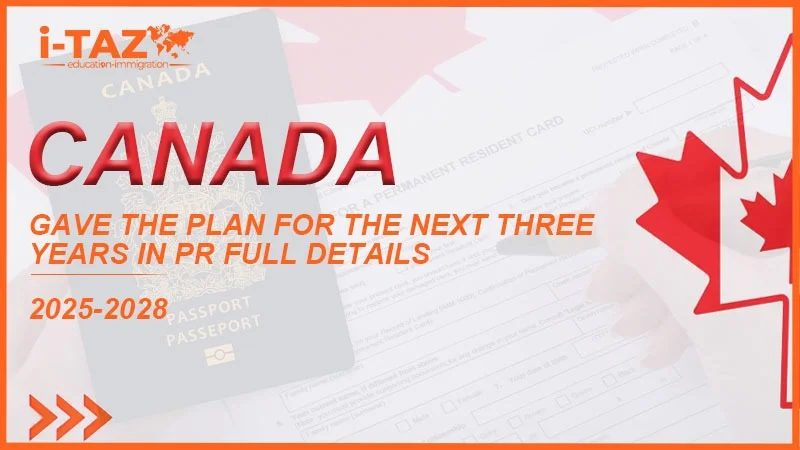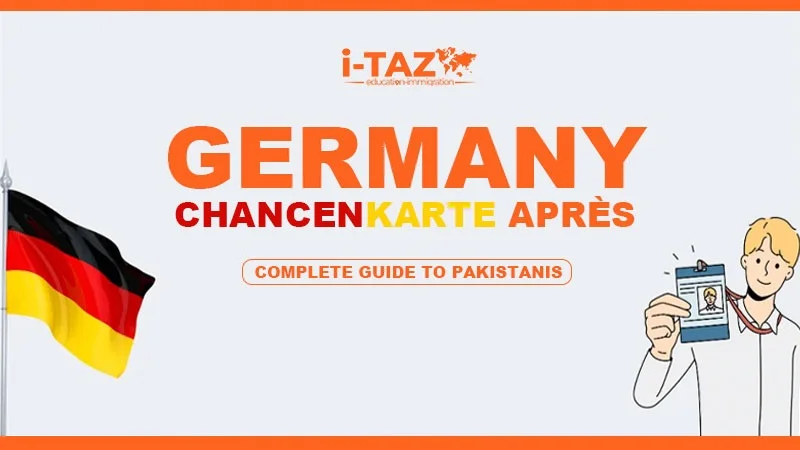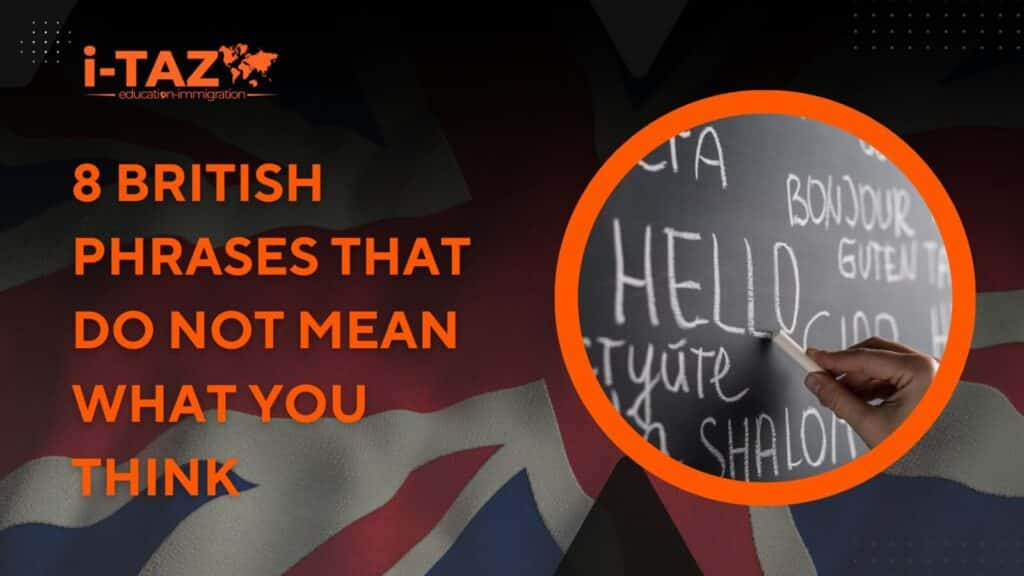Relocating to the UK isn’t just about swapping left side traffic and cooler weather; it’s about tuning your ear to an entirely new rhythm of everyday speech. Local phrases pop up on campus, in supermarkets, and even on the bus, and knowing them saves you from the classic polite-smile-but-no-idea-what-they-just-said moment.
1. “You alright?” / “Y’alright?”
What it literally looks like
A genuine welfare check.
What it actually is
A lightning fast “hello.” You’re not expected to list your feelings or yesterday’s troubles.
How to respond
A quick: “Yeah, I’m good, thanks! You?” (said almost in a single breath). Keep walking or carry on with what you were doing.
Cultural side note
- Tone matters: It’s delivered with a rising tone, almost like “Yo-right?”
- Speed: Blink and you’ll miss it. Brits prize short greetings, especially in corridors or shop queues.
- Advanced tip: After a few weeks you’ll hear yourself saying it without consciously deciding to.
2. “Cheers”
Multiple meanings
- Toast: clink glasses.
- Thanks: “Cheers for holding the door.”
- Good-bye: often paired with a wave when leaving a shop or café.
How to use confidently
If someone hands you lecture notes, simply reply “Ah, cheers!” You’ve just mastered everyday gratitude.
Body language cues
A friendly nod or small smile accompanies “cheers.” Over-enthusiasm (big bow, dramatic gesture) feels awkwardly un-British.
Also read: UK Immigration White Paper 2025 What You Need to Know!
3. “Fancy a cuppa?”
The heart of British social life
“Cuppa” = cup of tea (almost always black tea with milk unless specified). This phrase is shorthand for “Let’s pause life and connect.”
Typical scenarios
- A housemate breaks from revision at 11 p.m. and knocks on your door.
- A lecturer finishes office hours and invites lingering students for a brief chat in the staff kitchen.
Etiquette
- Saying yes rarely obligates you to stay longer than the drink.
- If you decline, soften it with “Maybe later?” or “I’d love to, but I have a deadline.”
4. “I’m knackered”
Meaning
Utter exhaustion. Synonyms: shattered, zonked (regional).
Example dialogue
You: “How was your night shift?”
Flatmate: “Honestly, I’m knackered. Might crash for an hour.”
Useful additions
- Knackered + ‘after’ clause: “Knackered after that 9am lab.”
- Polite observation: “You look knackered, fancy a break?”
5. “Let’s have a proper chat”
Translation
We’ve been skimming the surface; let’s talk in depth.
Contexts
- A tutor sensing confusion about coursework.
- A friend notices you’re homesick.
- A potential landlord clarifying contract details.
Sub-text
The word “proper” highlights sincerity. Brits often ease into serious topics; this phrase is the verbal green light for honesty.
Pro-tip for international students
If a supervisor says this, don’t panic. It usually signals support, not trouble.
6. “Taking the mick” / “Taking the mickey” / “Taking the piss” (very informal)
Meaning
Playfully mocking or joking, rarely malicious.
Example
Your friend claims they revised for an exam by osmosis (sleeping on the textbook). You reply, “You’re taking the mick!”
How to stay comfortable
- Join in the banter once you read the room.
- If it feels harsh, a calm “Steady on!” tells them they’ve crossed a line.
Cultural insight
British humour is dry and self deprecating. Laughing at oneself is a super power in group bonding.
7. “I’m gutted”
When to say it
Missed out on student accommodation lottery? Gutted. Favourite band cancels their UK tour? Mega gutted.
Nuance scale
- Mild disappointment: “A bit gutted.”
- Deep sadness: “Absolutely gutted.”
Emotional literacy
Using this phrase signals you’re willing to express vulnerability, something appreciated in close friendships.
8. “I’ll give it a go”
Essence
Optimistic openness to new experiences.
Situations
- Invited to a traditional Sunday roast (complete with Yorkshire pudding you can’t identify).
- Considering joining the campus rowing club despite zero boat skills.
Growth mindset booster
Adopting this attitude fast tracks cultural immersion. Even if you secretly doubt success, Brits respect the effort.
Putting It All Together
Scene: First week in halls. Kitchen common area.
- Flatmate Emma: “You alright?”
You: “Yeah, good, cheers! You?” - Emma: Holds kettle “Fancy a cuppa?”
You: “Love one, thanks.” - After tea and laughter about jet lag…
You: “I’m knackered though, that red eye flight wiped me.” - Emma: “Same here. Tell you what, let’s have a proper chat tomorrow after induction?”
You: “Sure! I’ll give it a go.”
Quick Glance Cheat Sheet
| Phrase | Core Meaning | Appropriate Response |
| You alright? | Casual hello | “Good, thanks! You?” |
| Cheers | Thanks / Bye | Smile or “Cheers!” back |
| Fancy a cuppa? | Join me for tea? | Accept or politely postpone |
| I’m knackered | I’m very tired | Relate or offer support |
| Proper chat | Serious conversation | Arrange time & place |
| Taking the mick | Light teasing | Laugh, tease back, or set boundary |
| I’m gutted | Deeply disappointed | Offer empathy |
| I’ll give it a go | I’ll try | Encourage or join in |
Language is culture encoded in sound. By weaving these phrases into your daily life, you’re not just memorizing slang, you’re signalling openness, respect, and curiosity. Next time someone asks, “You alright?” answer with confidence, brew that cuppa, and dive into the grand adventure awaiting you in the UK.
Welcome to your new chapter. Itaz has your back every step of the way. If you’d like more resources, like an audio guide to accents, a printable cheat card for your wallet, or even a quick quiz to test your mastery, just let us know, and we’ll give it a go!









